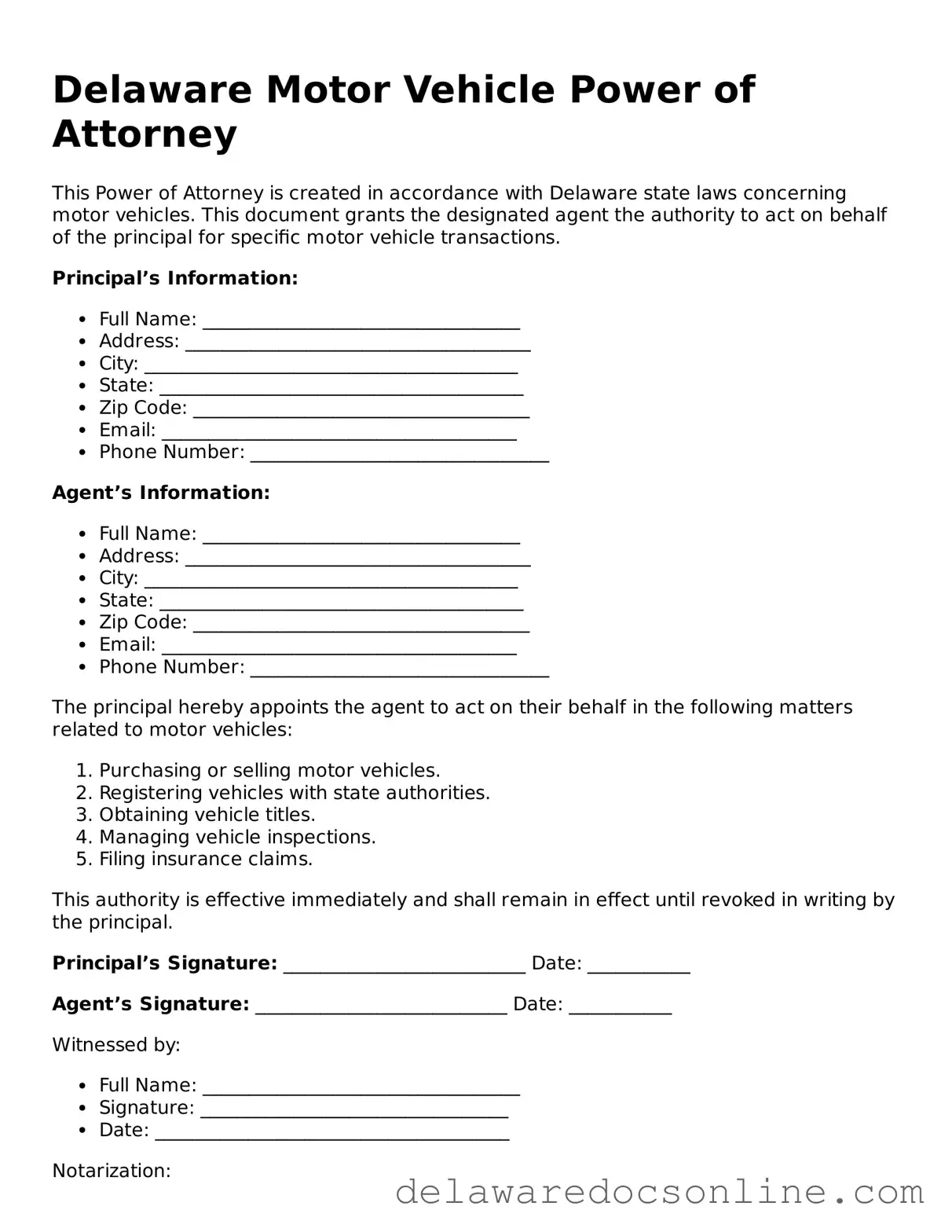Attorney-Verified Motor Vehicle Power of Attorney Document for Delaware
The Delaware Motor Vehicle Power of Attorney form is a legal document that allows an individual to designate another person to act on their behalf regarding motor vehicle-related matters. This form is particularly useful for those who may be unable to attend to these matters personally, such as during a relocation or health issue. By granting this authority, the principal ensures that their interests in vehicle transactions are managed effectively and efficiently.
Make Your Motor Vehicle Power of Attorney Now

Attorney-Verified Motor Vehicle Power of Attorney Document for Delaware
Make Your Motor Vehicle Power of Attorney Now

Make Your Motor Vehicle Power of Attorney Now
or
⇓ PDF File
Need speed? Complete the form now
Edit, save, download — finish Motor Vehicle Power of Attorney online with ease.